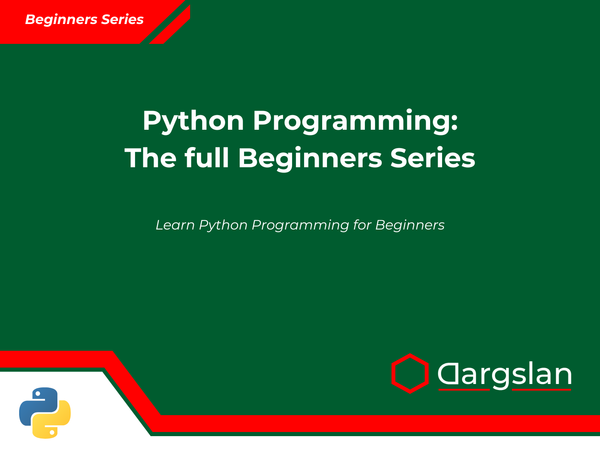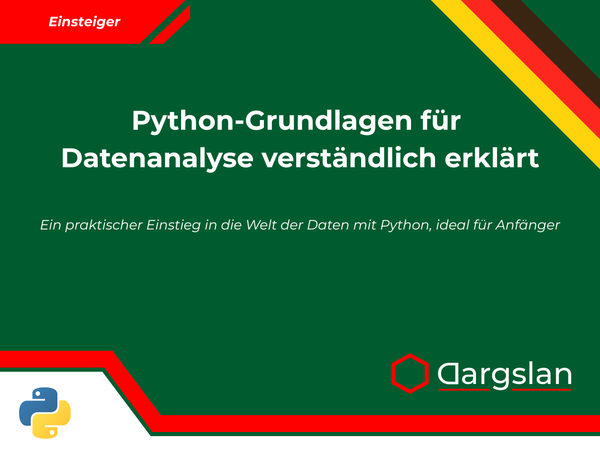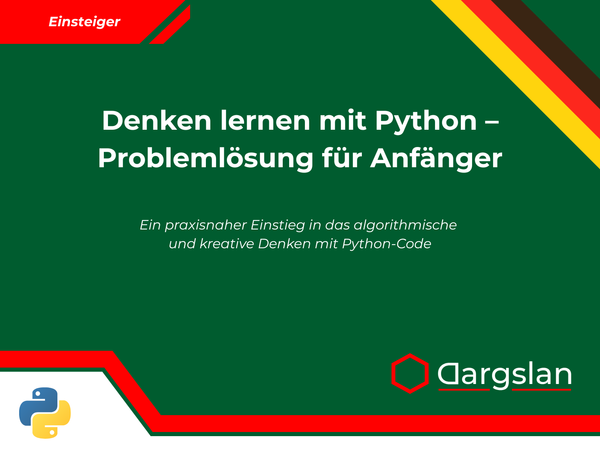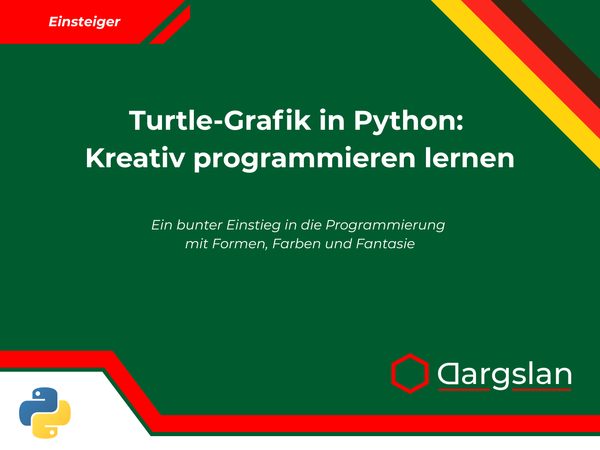Book Review: Simple Games with Python: A Beginner’s Project Book
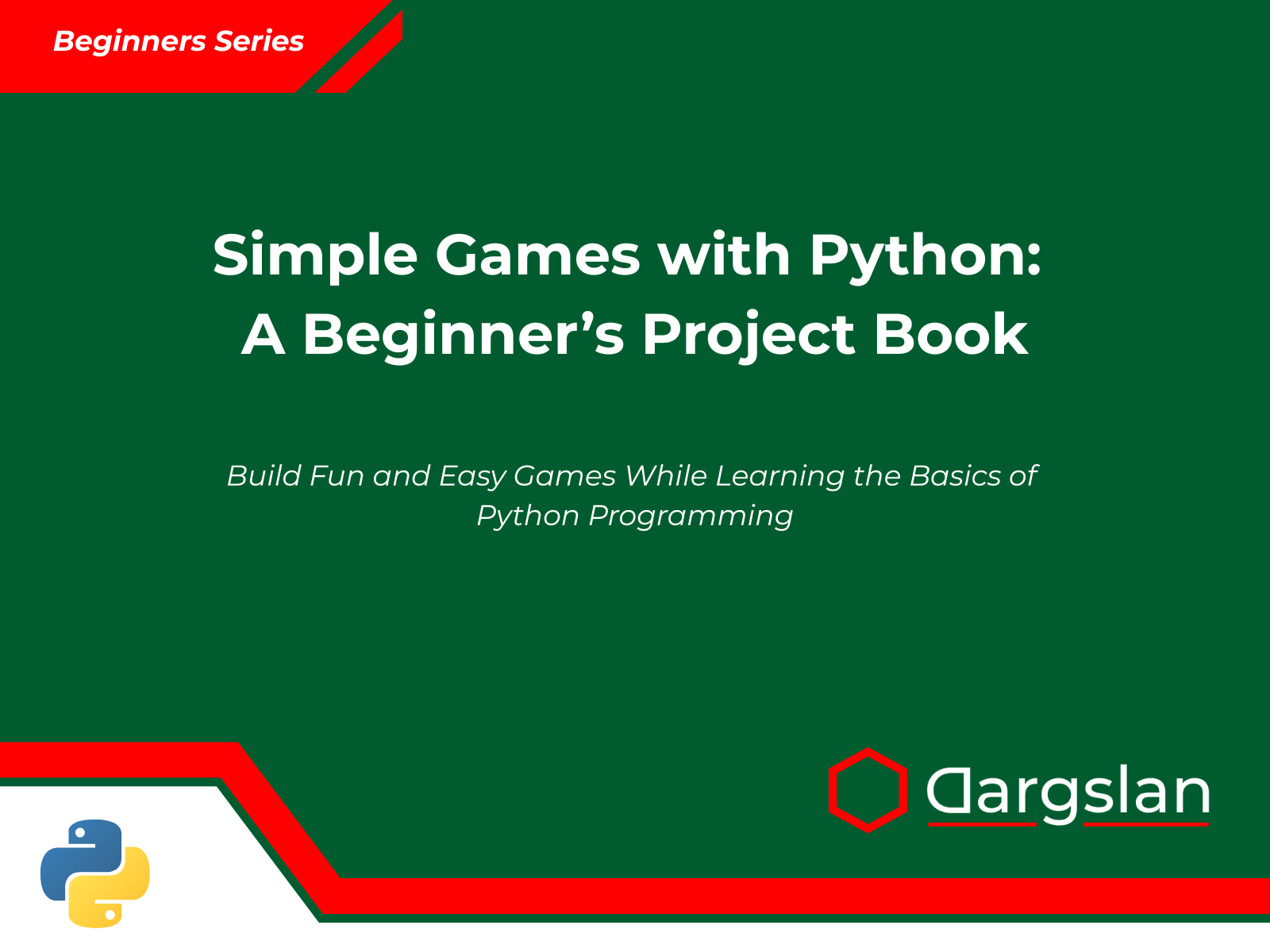
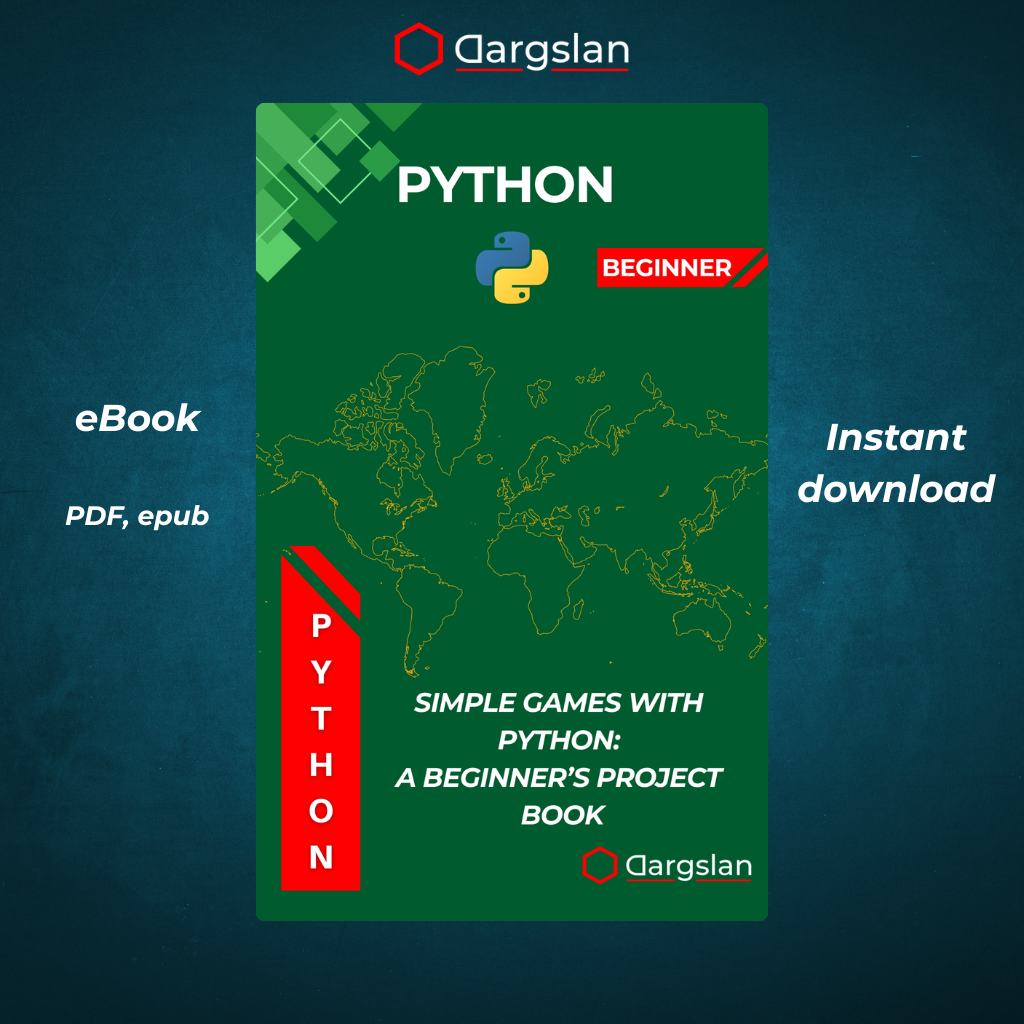
Simple Games with Python: A Beginner’s Project Book
Build Fun and Easy Games While Learning the Basics of Python Programming
Comprehensive Review: "Simple Games with Python: A Beginner's Project Book" - Learn Coding Through Fun Game Projects
Introduction: Transforming Programming Education Through Game Development
In today's technology-driven world, programming skills have become increasingly valuable, yet many beginners find traditional coding instruction dry and disconnected from practical applications. "Simple Games with Python: A Beginner's Project Book" by Dargslan offers a refreshing alternative by combining fundamental Python programming concepts with the inherently motivating task of building games. This comprehensive review explores how this project-based learning resource stands out in the field of Python educational materials and why it might be the perfect starting point for your coding journey.
Book Overview: A Hands-On Approach to Learning Python
"Simple Games with Python" takes a practical approach to teaching programming that aligns with modern educational theories. Rather than beginning with abstract concepts, the book immediately engages readers by guiding them through the creation of eight increasingly complex text-based games. Each project introduces new programming concepts while reinforcing previously learned skills, creating a scaffolded learning experience that gradually builds competence and confidence.
The premise is both straightforward and effective: learn Python fundamentals by building functional games from scratch. This project-focused methodology transforms what could be an intimidating learning process into an engaging journey of creation and discovery.
Target Audience: Who Will Benefit Most?
This book is clearly designed with true beginners in mind, making it ideal for:
- Complete programming novices looking for an accessible entry point
- Students supplementing formal computer science education
- Educators seeking project-based materials for teaching Python
- Self-learners who prefer practical application over theory
- Individuals who learn better through concrete projects rather than abstract examples
- Young learners (teens and up) interested in game development as a gateway to programming
While experienced programmers might find the pace gradual, they could still extract value from the project structures and implementation techniques.
Chapter-by-Chapter Analysis: A Progressive Learning Journey
Chapter 1: Let's Get Started! Installing Python and Your Editor
The book begins with the crucial step of properly setting up a development environment. This chapter walks readers through:
- Downloading and installing Python 3.x
- Choosing and configuring an appropriate code editor
- Understanding basic terminal/command line usage
- Running their first Python program
Starting with these foundational steps ensures that all readers, regardless of technical background, can successfully prepare their systems for the programming journey ahead.
Chapter 2: Game 1 – Number Guessing Game
The number guessing game serves as an excellent entry point for several reasons:
- It requires minimal code to implement a functional game
- It introduces fundamental concepts like variables, user input, conditional statements, and loops
- It provides immediate feedback through gameplay
This chapter covers taking user input, converting string input to integers, using comparison operators, implementing conditional logic, creating loops, generating random numbers, and establishing basic program structure.
Chapter 3: Game 2 – Rock, Paper, Scissors
Building on the previous game, the Rock, Paper, Scissors project extends the reader's knowledge by introducing:
- More complex conditional logic (determining the winner)
- Working with multiple possible outcomes
- Further practice with randomization
- Potentially introducing functions to organize code
- Score tracking across multiple rounds
This game cleverly reinforces previously learned concepts while adding new layers of complexity in an approachable format.
Chapter 4: Game 3 – Dice Roller Simulator
The dice roller simulator focuses on:
- Creating and using functions
- Handling multiple dice and calculations
- Understanding probability concepts through code
- Potentially introducing more advanced input validation
- Using loops for repeated rolls
- Formatting output for readability
This project teaches modular programming through functions while creating a practical utility that demonstrates how programming can model real-world objects and behaviors.
Chapter 5: Game 4 – Quiz Game
The quiz game marks a significant step up in complexity as it introduces data structures:
- Working with lists to store questions and answers
- Possibly introducing dictionaries to associate questions with answers
- Managing multiple-choice options
- Keeping score and calculating percentages
- Handling different question types
This project demonstrates how programs can manage and manipulate collections of data, a crucial concept in programming.
Chapter 6: Game 5 – Hangman (Text-Based Version)
Hangman builds significantly on string manipulation skills:
- Working with strings in detail (checking for letter presence, revealing letters)
- File handling to load word lists
- Tracking game state (guessed letters, remaining attempts)
- ASCII art for visual representation
- More complex game logic with multiple conditions
This classic game provides excellent practice in string operations while introducing file input/output concepts.
Chapter 7: Game 6 – Typing Speed Test
The typing speed test introduces time-based programming:
- Working with Python's time module
- Calculating and displaying performance metrics
- More advanced string comparisons
- Error detection and correction
- Statistical analysis of user performance
This project combines previously learned concepts with new time-based operations, teaching how to measure and evaluate user performance.
Chapter 8: Game 7 – Mad Libs Story Generator
The Mad Libs project focuses on:
- Advanced string formatting and interpolation
- Working with text templates
- User interaction for multiple inputs
- Parts of speech and language concepts
- File handling to load different story templates
This creative application demonstrates how programming can be used for word games and text manipulation.
Chapter 9: Game 8 – Simple Text Adventure
As the culminating project, the text adventure combines nearly all previously learned concepts:
- Complex program structure with multiple functions
- State management across different game locations
- Inventory and item systems
- Command parsing and interpretation
- Storytelling through code
This ambitious final project serves as both a capstone and a demonstration of how far the reader has progressed in their Python journey.
Chapter 10: Level Up Your Games!
This chapter provides guidance on extending and enhancing the completed projects, covering:
- Adding graphics or sound
- Implementing more advanced features
- Optimizing code for better performance
- Principles of good game design
- Transitioning to more complex game development
This forward-looking chapter shows the author's understanding that learning is ongoing and projects are never truly "finished."
The Appendices: Valuable Supplementary Material
The book includes thoughtfully designed appendices that serve multiple purposes:
- Python Basics Refresher: Provides quick reference for fundamental concepts
- Ideas to Expand Each Game: Offers concrete paths for continued learning
- Beginner's Debugging Tips: Addresses the reality that errors are part of programming
- Bonus Game: Rewards readers with an additional project to tackle
These appendices transform the book from a mere tutorial collection into a more complete learning resource.
Key Strengths: Why This Book Stands Out
Project-Based Learning Approach
By centering the learning experience around complete game projects, the book provides:
- Immediate application of concepts, reinforcing understanding
- Motivation through visible progress and playable results
- Context for abstract programming concepts
- A natural progression of complexity
- Portfolio-building opportunities for beginners
Scaffolded Learning Structure
The book's sequencing of games creates a natural learning curve:
- Each game builds upon skills developed in previous projects
- New concepts are introduced gradually, preventing overwhelm
- Core concepts are revisited and reinforced through different applications
- The progression from simple to complex maintains the challenge without frustration
Focus on Practical Skills
The chosen projects help develop real-world programming skills:
- Working with user input and validation
- Managing program state
- Handling errors and edge cases
- Organizing code logically
- Building user-friendly interfaces (even in text form)
- Reading and writing files
- Working with external libraries
Comprehensive Coverage of Python Fundamentals
Through the game projects, readers encounter all essential Python concepts:
- Variables and data types
- Control structures (if statements, loops)
- Functions and modular programming
- Data structures (lists, dictionaries)
- File I/O operations
- String manipulation
- Time and performance measurement
Educational Value: Beyond Just Coding
Computational Thinking Development
The projects naturally develop computational thinking skills:
- Breaking down complex games into manageable components
- Identifying patterns across different games
- Creating step-by-step solutions to problems
- Focusing on relevant details while ignoring unnecessary complexity
Problem-Solving Strategies
Game development challenges encourage effective problem-solving:
- Building functionality piece by piece
- Finding and fixing errors systematically
- Trying different solutions when stuck
- Looking up information when needed
Project Management Skills
Creating complete games teaches rudimentary project management:
- Determining what features to include
- Deciding what to implement first
- Breaking work into manageable sessions
- Ensuring the game works as intended
Creative Expression
Despite being technical projects, the games allow for creativity:
- Customizing game scenarios and themes
- Writing engaging prompts and responses
- Designing balanced game mechanics
- Adding personal touches to make each game unique
Potential Limitations to Consider
Text-Only Focus
While text-based games provide an accessible entry point, some readers might be disappointed by the lack of graphics. However, this limitation is also a strength, as it:
- Keeps the technical requirements minimal
- Forces focus on core programming concepts rather than visual elements
- Makes the projects accessible to all Python environments
- Prepares readers for understanding program logic before adding complex graphics
Simplified Introduction to Programming Concepts
As a beginner-oriented book, it necessarily simplifies certain programming concepts. Advanced readers might find some explanations rudimentary, though this is appropriate for the target audience.
Limited Coverage of Software Engineering Practices
While excellent for learning Python syntax and concepts, the book may not extensively cover professional software engineering practices like testing methodologies, version control, or documentation standards. However, this focus is appropriate for a beginner's first exposure to programming.
Practical Applications of Skills Developed
The programming skills developed through this book extend far beyond game development:
Educational Applications
- Teaching basic programming concepts in classrooms
- Demonstrating logical thinking and problem-solving
- Creating interactive educational tools
Professional Development
- Building a foundation for further programming education
- Developing portfolio pieces for entry-level positions
- Learning skills transferable to data analysis, web development, and automation
Personal Projects
- Creating custom tools and utilities
- Automating repetitive tasks
- Developing a foundation for more advanced programming projects
Future Learning Path: Where to Go After This Book
After completing "Simple Games with Python," logical next steps include:
- Exploring graphics libraries like Pygame for visual games
- Learning object-oriented programming in greater depth
- Studying game design principles to create more engaging experiences
- Exploring web development with frameworks like Flask or Django
- Delving into data science applications with libraries like Pandas
- Contributing to open-source Python projects to gain collaborative experience
Conclusion: A Foundation Built Through Engaging Projects
"Simple Games with Python: A Beginner's Project Book" represents a thoughtfully designed gateway into the world of programming. By leveraging the natural appeal of game creation, it transforms what could be a dry, abstract learning experience into an engaging journey of creation and discovery. The book's structure—progressing from simple to complex projects while reinforcing core concepts—provides an effective scaffold for building genuine Python proficiency.
For absolute beginners, the approach minimizes the intimidation factor often associated with learning programming, replacing it with the satisfaction of creating working games from the earliest stages. The text-based focus allows readers to concentrate on mastering fundamental concepts before adding the complexity of graphics.
Perhaps most importantly, the book understands that learning to program is not just about absorbing syntax—it's about developing the problem-solving mindset that allows programmers to tackle new challenges independently. By guiding readers through complete projects while providing ideas for expansions, "Simple Games with Python" doesn't just teach code; it nurtures the creativity and analytical thinking that characterize successful programmers.
Whether used as a self-study resource, a classroom textbook, or a supplement to other learning materials, this book offers a structured, engaging path into Python programming that builds both knowledge and confidence through the universal appeal of games.
Frequently Asked Questions About "Simple Games with Python"
Do I need any prior programming experience to use this book?
No, the book is specifically designed for complete beginners with no prior programming knowledge. It starts with the basics of setting up Python and guides you step-by-step through each concept.
What version of Python does the book use?
The book uses Python 3.x, which is the current standard for Python programming.
Do I need any special software or hardware to complete the projects?
The only requirements are a computer capable of running Python (which includes virtually any modern Windows, Mac, or Linux system) and a text editor or integrated development environment (IDE). The book's first chapter guides you through setting up these essentials.
How long does it take to complete all the projects in the book?
Completion time varies based on individual learning pace, prior experience, and time commitment. A complete beginner might spend 2-4 hours on each early project and 5-10 hours on later, more complex games. Working through the entire book might take 30-60 hours of focused effort.
Are the games graphical or text-based?
The games in this book are primarily text-based, running in the console/terminal. This approach allows for focus on core programming concepts without the added complexity of graphics programming. However, the skills learned provide a foundation for graphical game development with additional libraries.
Can I use the games I create commercially or in my portfolio?
Generally, code you write while learning from a tutorial book is yours to use. The games developed through this book would make excellent portfolio pieces to demonstrate your programming skills to potential employers or clients.
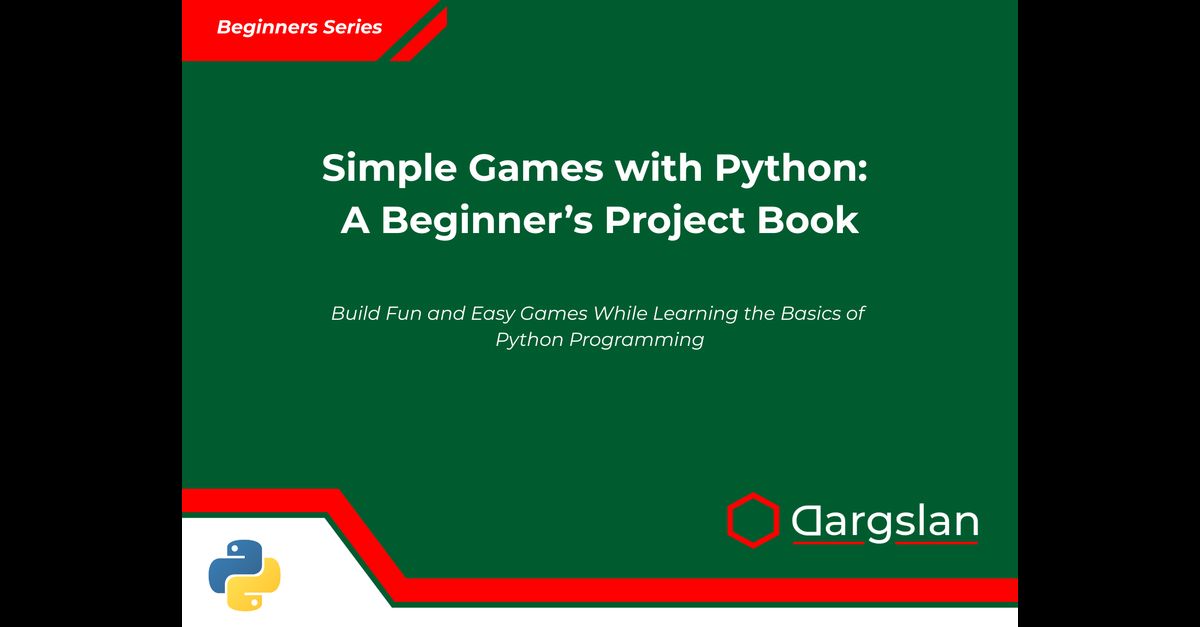
Simple Games with Python: A Beginner’s Project Book



